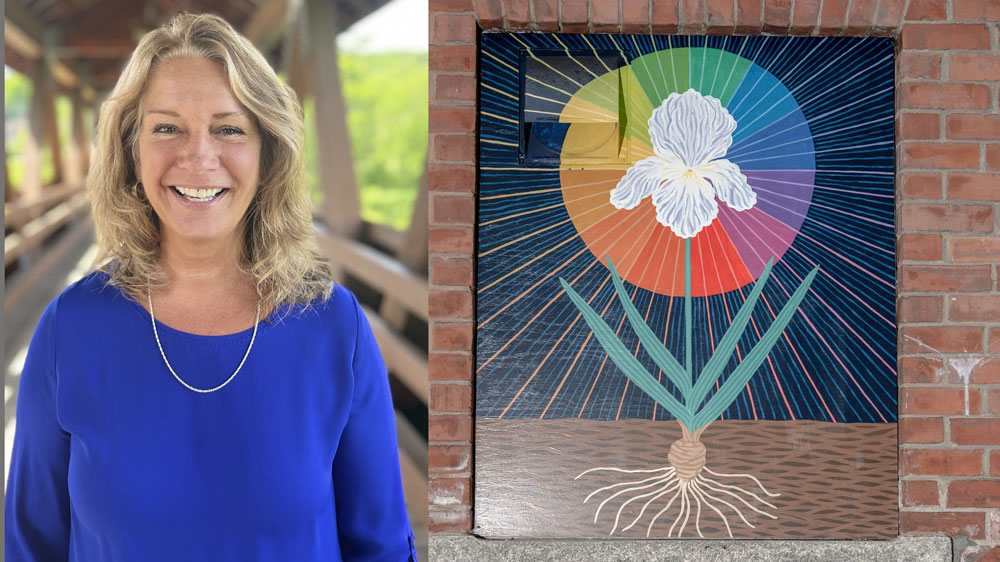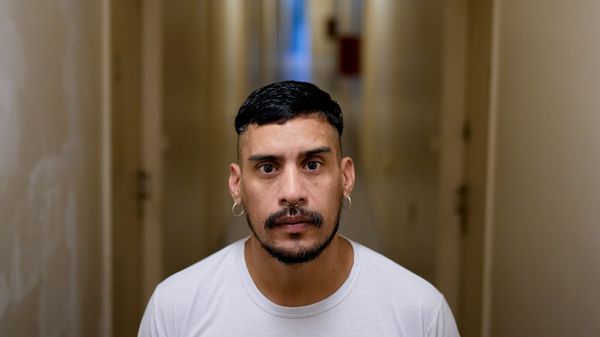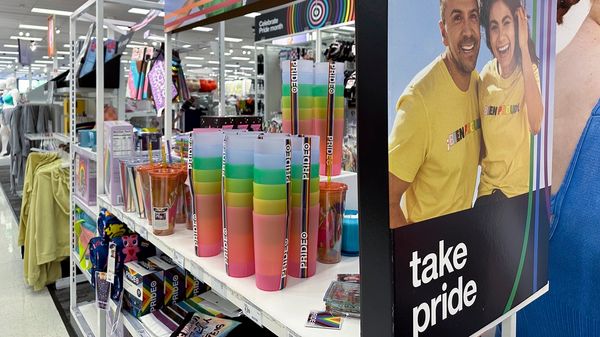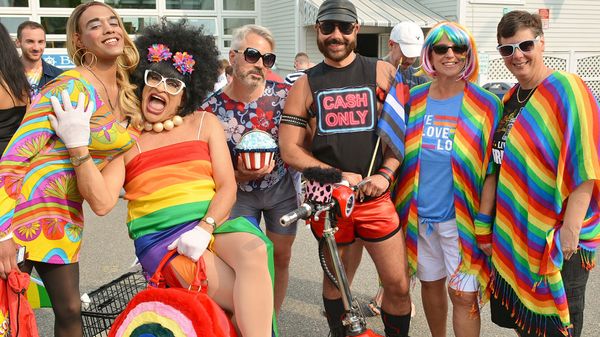May 29, 2016
3 Men Sue SF Pride Over Shootings
Seth Hemmelgarn READ TIME: 7 MIN.
One man who was shot and two brothers who were injured in recent San Francisco LGBT Pride celebrations are suing organizers, claiming that the organization overseeing the event has "knowingly and willfully failed to take adequate steps to prevent violence."
Among other things, attorneys are asking for the San Francisco LGBT Pride Celebration Committee to be prohibited from holding this year's festival, which is set for June 25-26.
But communications strategist Sam Singer, who's working with the Pride Committee, told the Bay Area Reporter Wednesday, "Yes, Pride is happening as scheduled. We firmly believe the court will reject this attempt to intimidate San Francisco Pride, and we will be victorious." The injunction would not apply to the parade.
Complaints were filed May 18 in San Francisco Superior Court saying that the annual celebration, which draws hundreds of thousands of people, has "devolved into a violent shooting gallery."
Freddy Atton, of San Francisco, was shot June 27, 2015, after "a large fight broke out" on Fulton Street west of Hyde, which was inside the festival perimeters. He claims in his lawsuit that the Pride Committee allowed someone "to bring a handgun into the celebration."
"There was no security in sight to address the fight, to dissipate it, or to eject the combatants," the complaint says, and the celebration was allowed "to descend as it does annually into lawlessness."
Atton, who'd been attending the festival and lives in the neighborhood, was walking by when "the festering fight turned into a shootout."
At about 6 p.m., "a gunman fired into the crowd, shooting Atton in the left arm," according to court documents. He "suffered severe injuries," including "losing use of his left hand," and he's experienced "emotional distress" and "has incurred expensive medical and therapy bills."
Atton, who was 64 when he was shot, is seeking at least $10 million in damages.
Joshua Spencer, 20, has pleaded not guilty to charges including attempted murder and assault with a semiautomatic firearm in the case. Spencer, whose next court date is June 2, is in custody on $2.5 million bail.
Officer Carlos Manfredi, an SFPD spokesman, said shortly after the shooting that the situation was believed to have started when several groups of men, "unrelated to the Pride event," got into a verbal argument near or inside the venue.
2013 Shooting
Mahlik and Monte Smith, two brothers from Oakland, were injured as they fled a shooting at the June 30, 2013 celebration.
Their complaint says that after 6 p.m. the night they were shot, the party "was still in full swing. A group of young men began fighting outside the celebration and were allowed to proceed" inside "without anyone stopping them. ... The committee's safety volunteers, in the middle of this, just up and left."
Eventually, at least one of the people involved in the fight "began to display a handgun and rob attendees."
Nobody from SF Pride tried to stop the fight or throw out the people involved, the documents say.
"No one from the committee attempted to enforce the arbitrary 6:30 end time, to clear the area, or to conclude the celebration," according to the complaint.
Soon after closing time, "one of the combatants fired into the crowd shooting at least two victims."
The complaint says, "The committee had no personnel present at all to control ingress and egress. Immediately after the shooting, it ordered its staff to flee the celebration site to protect their own safety, leaving attendees to fend for themselves. ... The limited security it hired also fled immediately on hearing gunshots, as the committee failed to retain even a single APEX [security] guard equipped to respond to violence."
As he fled, Monte Smith, 20, "was thrown to the ground by the surging mass, his face smashing across a curb, his progress slowed by his leg dragging across the concrete sidewalk as he tumbled."
He "lost most of the skin on his leg," and after the incident had trouble focusing and had to switch schools, among other problems.
Mahlik Smith, 19, "was shoved to the ground by the stampede, his head striking a metal pole before hitting the ground," court documents say.
He became unconscious during the incident and later started having "debilitating and frequent migraine headaches." (Two weeks before the Pride party, he'd suffered a concussion while playing sports, but after being released from the hospital that time he'd "suffered from no symptoms and, importantly, had never experienced a migraine in his life," his complaint says.)
The records also say Mahlik Smith "has fluid build-up on his brain as a result of his head injury" from the celebration "and may need to suspend his collegiate studies as a result thereof."
The Smiths are seeking at least $5 million.
SF Pride Responds
In a news release issued just after the lawsuits were filed last week, George Ridgely, the Pride Committee's executive director, said, "The threatened injunction is meant to intimidate our organization and would have a massive and long-term negative impact on the LGBTQIA community of San Francisco. We will not be bullied by false claims and strongly believe the court will see this action for what it is."
The news release also said Pride organizers work "closely and in partnership with the San Francisco Police Department, as well as private security and crowd control staff, so that all participants and spectators can enjoy a collective experience that is safe and enjoyable."
The celebration is free, but there's a suggested $5-$10 donation at the gate. Proceeds from the festivities have resulted in over $2.5 million going to local nonprofits that work on issues ranging from HIV/AIDS to homelessness, and that funding "would be jeopardized" by the proposed injunction, Singer said.
Safety Concerns Acknowledged
Exhibits accompanying Atton's complaint include messages between Pride officials in which they acknowledge serious concerns about safety.
Pride organizers admitted that they "knowingly and willfully failed to take adequate steps to prevent violence" despite incidents in previous years, the complaints say.
The documents cite a 2013 Pride safety subcommittee report that said, "How many years in a row must Pride end with a bang - literally - before we take seriously the changing nature of the end-of-day crowd? ... It has been many years running now that Pride has had serious crises at its closing time. It is negligent of us to maintain this ignore-the-problem-and-hope-it-goes-away-attitude."
The records also show how candid Pride officials could be in other ways.
A May 2014 email from then-board member David Currie to Ridgely, the current executive director, and board Vice President Gary Virginia criticizes comments gay police Inspector Len Broberg made to the Bay Area Reporter shortly after the June 2013 shooting. The B.A.R. had repeated Broberg's comments in a story just before Currie wrote his email.
The B.A.R. story says Broberg had "questioned the Pride Committee's security practices and criticized the group's top officials for not responding to the incident.
'"I know there were a lot of cops out there,' Broberg said, but 'you have to do something else to control the crowd.'"
In his email to Pride colleagues Currie wrote, "Guys, someone should also reach out to Lenny Broberg to attempt to get him to stop talking to the press. ... He knows damn well that it is impossible to secure the event at that location [where the shooting occurred]. ... He knows that securing the event at that location is physically, legally, and economically infeasible, especially if it is to remain a free event. I can't believe he is throwing us under the bus with his comments to the B.A.R. "
In his own May 2014 email to longtime parade manager Marsha Levine, Virginia, who was then the board's president, talked about why he wanted to discuss safety in a letter to the community that would apparently appear in Pride's community guide.
Among other things, Virginia mentioned to Levine that police had been complaining about people using bottles as weapons, and that he'd heard about "high incidents of thefts and attacks," especially after 4 p.m.
"I want to be on record ...," Virginia wrote. "Should someone get injured or killed from any of the above issues, I can say that I advised and cautioned people in my one and only public message to the masses."
Levine's response included the statement, "We don't have sufficient police support at the gates to go searching for stuff brought in from outside, and I'm not sure, given the press of the crowd, that our security people at the gates can do a thorough job either."
She added, "Unless you stop and search everyone, stuff is always going to sneak in. ... [A]t a free event where there's a dozen ways to sneak in and avoid both checkings and making a donation, we just can't guarantee 100 percent control."
According to the complaints, which also cite other statements from Pride and police officials, the San Francisco Police Department in 2012 "concluded that the celebration could not be safely held" at Civic Center, and after that year's festival, police recommended that the footprint and size change for 2013 "because it was impossible to effectively police the celebration site or to provide for the safety of attendees at that location."
Police also shared the finding with the Pride Committee, hoping "to avoid the certainty of violence causing injuries to third-party attendees."
Before the 2015 celebration, SFPD recommended that the Pride Committee change the celebration's location, make the footprint smaller since the party "could not be safely held at the Civic Center site where violent incidents causing injuries to attendees was certain to occur," and put up a fence. Police also said attendees should have to go through "metal detective wanding, pat-downs, and bag checks" before coming in, court documents say.
However, despite violent incidents in previous years, Pride organizers "simply ignored the San Francisco Police Department's recommendations in full and made no changes to its event" last year, the records say.
"Amazingly, the committee failed to employ even a single security guard - not even one - to secure the entrance to the celebration and protect the safety of attendees," the plaintiffs say.
Police also found people going to Pride were also unprotected in other ways, according to the complaints.
"The San Francisco Police Department concluded that the committee should have tripled the amount of private security it had on hand to provide event security within the celebration," the documents say.
According to the complaints, the committee has continued to use "the same alcohol policy it implemented in 2012 without any material changes even though it conceded in its own reports that this created a 'huge problem' and rendered the celebration unsafe and dangerous."
Court records don't indicate any movement toward the injunction of this year's festival, and the Pride Committee hasn't filed a formal response to the lawsuits.
The cases are set for case management discussions in October.
Ryan Lapine, who's with the Beverly Hills-based firm Rosenfeld, Meyer, and Susman and is representing Atton and the Smiths, also represented Trevor Gardner, a Los Angeles man who sued the Pride committee after he was shot at the 2013 festival. Gardner's case was settled earlier this year, but a lawsuit by Eric Ryan, who was also shot in 2013, is still pending. (Lapine is not representing Ryan.)





